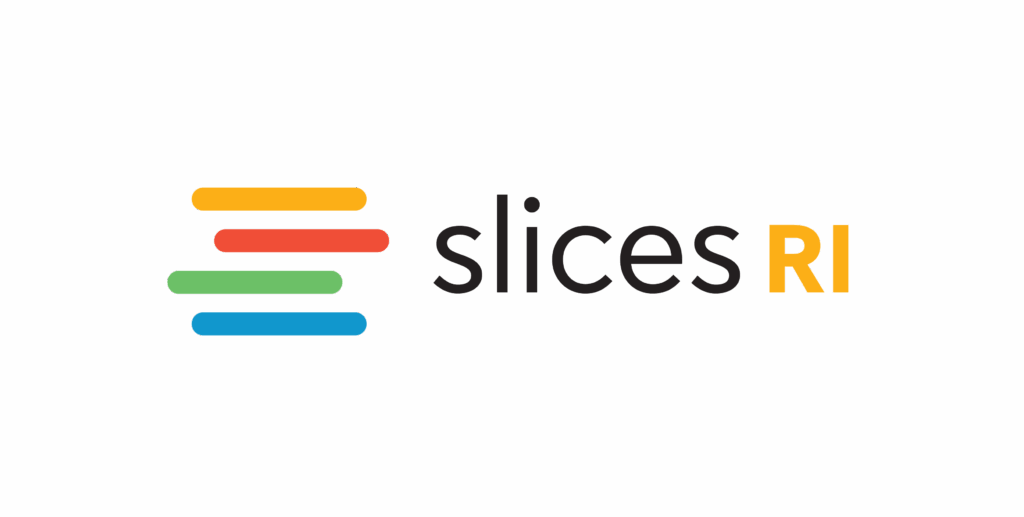SLICES-RI / CONVERGE Summer School 2025
Hands-On 6G: Accelerating Innovation through Open Architectures and Advanced Testbeds
Index
ToggleAbout
Building upon the successful legacy of previous editions in Volos (2022), Oulu (2023), and Lipari (2024), the SLICES-RI Summer School returns in 2025 with an exciting new edition in Porto, Portugal. This year’s event is jointly organized by the CONVERGE project, reflecting a joint effort to advance research and education in next-generation networks.
The main theme for the three-day summer school will be on Hands-on 6G: Accelerating Innovation through Open Architectures and Advanced Testbeds. The SLICES-RI / CONVERGE Summer School will continue its tradition of combining high-level academic content with practical, hands-on training. The program will feature keynotes, tutorials, technical lectures, and interactive workshops, offering participants a comprehensive experience across both theoretical and experimental domains. A social event is also planned to encourage networking and community-building among participants.
Join us in Porto for an immersive and collaborative experience designed to shape the future of 6G and experimental networking research.
Key Topics
- CONVERGE Technology Training: Hands-on experimentation with tools such as OpenAirInterface (OAI), OAIBOX, Reconfigurable Intelligent Surfaces (RIS), xApps, and computer vision. This training experience will emphasize the convergence of wireless communications, computer vision, sensing, and machine learning, fostering innovative research and practical deployment skills.
- SLICES-RI Experimental Research Methodologies: Delve into methodologies for conducting reproducible and ethically sound experimental research using the SLICES-RI infrastructure. Learn to apply best practices in scientific workflows, data management, and compliance within distributed network environments.
- 6G Network Architectures: Explore the foundational principles of 6G networks, focusing on disaggregated, programmable, and open architectures. Participants will explore cloud-native deployments and the decoupling of software and hardware to enable flexible, scalable network implementations.
- Integrated Sensing‑and‑Communications (ISAC) & Reconfigurable Intelligent Surfaces: Talks on the emerging 3GPP/ETSI work on RIS‑enhanced ISAC, covering channel models, architecture options, and standardisation status.
- Event‑Based Vision & 3D Perception: Lectures on point‑cloud processing and event-based sensing show how advanced computer‑vision pipelines can feed situational‑awareness and localisation services over 5G/6G links.
- Edge–Cloud Continuum & Open RAN Deployments: Deep‑dive sessions demonstrate cloud‑native orchestration of disaggregated RAN and core resources.
- Digital Twins & AI‑Driven Network Optimisation: An invited keynote introduces GPU‑accelerated simulation frameworks (e.g., NVIDIA Sionna) and ML pipelines that shorten design cycles and enable self‑optimising 6G networks.
- Energy Efficiency, Resilience & Sustainability: Dedicated talks quantify power consumption and present green design techniques for next‑generation infrastructures.
- 6G Standardisation Roadmap & Spectrum Licensing: A forward‑looking keynote on ITU‑R IMT‑2030 and 3GPP Release 21 timelines, and complementary sessions on evolving licensing and regulatory frameworks.
Venue
The SLICES-RI / CONVERGE Summer School 2025 will be held at INESC TEC – Institute for Systems and Computer Engineering, Technology and Science from 25 to 27 June 2025. INESC TEC is located at the Faculty of Engineering, University of Porto campus in Porto, Portugal.
Programme
Note: preliminary version, might be subject to changes.
Wednesday, 25 June 2025
| Time | Title | Speaker |
|---|---|---|
| 08:30 | Registration | |
| 09:00 | Welcome Session (Auditorium A) | Organizing Committee |
| 09:30 | Keynote 1 - "DeepSense and DeepVerse 6G: Enabling Research on Multi-Modal Sensing, Communication, and Digital Twins" (Auditorium A) | Ahmed Alkhateeb, Arizona State University, USA. Chair: Luís Pessoa - INESC TEC / FEUP |
| 10:30 | Coffee-break | |
| 11:00 | Lectures 1 (Auditorium A) | Chair: Filipe B. Teixeira - INESC TEC / FEUP |
| Experimenting with the SLICES-RI Blueprints and MRS/DMI | Serge Fdida, Marie-Jose Montpetit, Sorbonne Université | |
| Standardisation landscape for ISAC and RIS: enablers and architecture | Filipe Conceição, Interdigital | |
| From Best Effort to Resilience – Why now? | Ari Pouttu, University of Oulu | |
| 13:00 | Lunch | |
| 14:00 | Hands-on Training 1 - Part 1
| Luís Pereira and Clara Aidos - Allbesmart; Hugo Marques, IPCB Merim Dzaferagic, Trinity College Dublin |
| 15:30 | Coffee-break | |
| 16:00 | Hands-on Training 1 - Part 1
| Luís Pereira and Clara Aidos - Allbesmart; Hugo Marques, IPCB Merim Dzaferagic, Trinity College Dublin |
| 17:30 | (free time) | |
| 20:00 | Dinner | Capa na Baixa |
Thursday, 26 June 2025
| Time | Title | Speaker |
|---|---|---|
| 09:30 | Keynote 2 - "Digital Twins for Communications: The Road Ahead" (Auditorium A) | Jakob Hoydis, NVIDIA. Chair: Dirk Slock, EURECOM |
| 10:30 | Coffee-break | |
| 11:00 | Lectures 2 | Chair: Rafaelle Bruno, CNR |
| Towards Real-Time Channel Emulation and Digital Twinning with OpenAirInterface | Raymond Knopp, EURECOM | |
| Open source licenses in collaborative research projects. | Daniel Vasconcelos, INESC TEC | |
| Introduction to Event Based Vision | Jean-luc Dugelay, EURECOM | |
| 13:00 | Lunch | |
| 14:00 | Hands-on Training 2 - Part 1
| Damien Saucez, Inria German Madueno, Keysight |
| 15:30 | Coffee-break | |
| 16:00 | Hands-on Training 2 - Part 1
| Damien Saucez, Inria German Madueno, Keysight |
| 17:30 | Social Event | Visit to Burmester Wine Cellars and Boat Trip at Douro River |
| 20:00 | Dinner | Restaurante Ponte de Ferro |
Friday, 27 June 2025
| Time | Title | Speaker |
|---|---|---|
| 09:30 | Keynote 3 - "The road to 6G standardization" (Audiitorium A) | Abhimanyu Gosain, Northeastern University College. Chair: Serge Fdida, Sorbonne Université |
| 10:30 | Coffee-break | |
| 11:00 | Lectures 3 (Auditorium A) | Chair: Luís Pessoa, INESC TEC / FEUP |
| O-RAN and Energy Efficiency: A Fundamental Trade-off or a Solvable Challenge | Ivan Seskar, Rutgers University, USA | |
| The SLICES-RI metadata framework for enhanced Open Science | Panagiotis Hadjidemetriou, UCLan Cyprus | |
| Architecture and KPIs for Green IT Networked Systems and cloud | Yuri Demchenko, University of Amsterdam | |
| 13:00 | Lunch | |
| 14:00 | Lectures 4 (Auditorium A) | Chair: Ari Pouttu, University of Oulu |
| Edge Cloud Continuum | Paolo Bellavista – University of Bologna | |
| Converge Project: View to Communicate and Communicate to View | Luís Pessoa, INESC TEC / FEUP | |
| 15:30 | Closing Session | Organizing Committee |
Keynotes
Keynote 1 – “DeepSense and DeepVerse 6G: Enabling Research on Multi-Modal Sensing, Communication, and Digital Twins” – Ahmed Alkhateeb, Arizona State University, USA
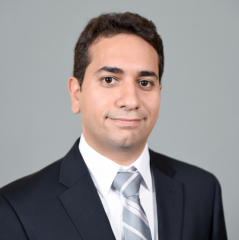
Abstract: TBA
Bio: Ahmed Alkhateeb received his B.S. and M.S. degrees in Electrical Engineering from Cairo University, Egypt, in 2008 and 2012, and his Ph.D. degree in Electrical Engineering from The University of Texas at Austin, USA, in August 2016. In Sept. 2016- Dec. 2017, he was a Wireless Communications Researcher at the Connectivity Lab, Facebook, in Menlo Park, CA. He joined Arizona State University (ASU) in Spring 2018, where he is currently an Associate Professor in the School of Electrical, Computer, and Energy Engineering. His research interests are in the broad areas of wireless communications, communication theory, signal processing, machine learning, and applied math. Dr. Alkhateeb is the recipient of the 2012 MCD Fellowship from The University of Texas at Austin, the 2016 IEEE Signal Processing Society Young Author Best Paper Award for his work on hybrid precoding and channel estimation in millimeter-wave communication systems, and the NSF CAREER Award in 2021.
Keynote 2 – ” Digital Twins for Communications: The Road Ahead” – Jakob Hoydis, NVIDIA, France
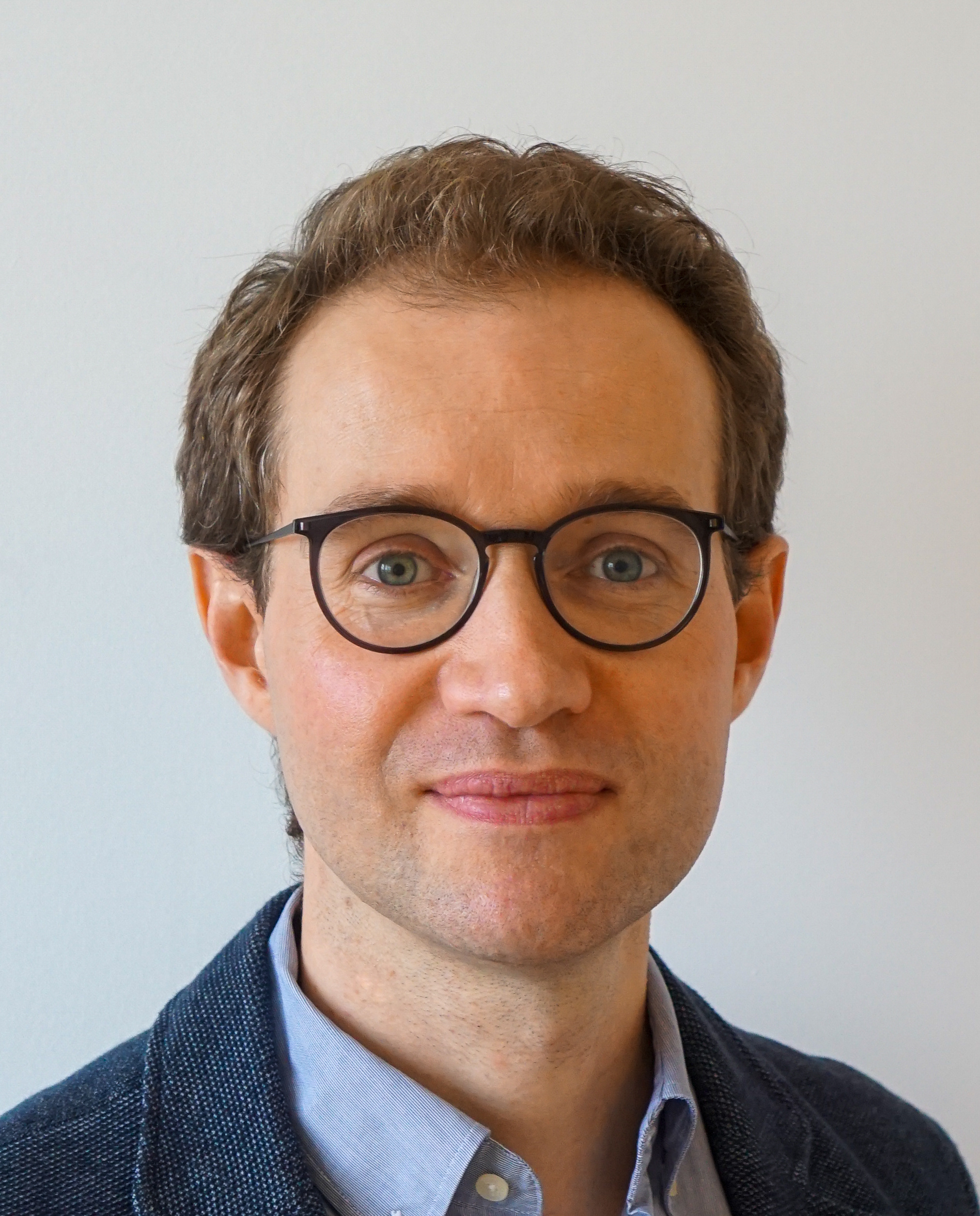
Abstract: TBA
Bio: Jakob Hoydis is a Distinguished Research Scientist at NVIDIA working on the intersection of machine learning and wireless communications. Prior to this, he was Head of a research department at Nokia Bell Labs, France, and co-founder of the social network SPRAED. He obtained the diploma degree in electrical engineering from RWTH Aachen University, Germany, and the Ph.D. degree from Supéléc, France. From 2019-2021, he was chair of the IEEE COMSOC Emerging Technology Initiative on Machine Learning as well as Editor of the IEEE Transactions on Wireless Communications.
He is recipient of the 2019 VTG IDE Johann-Philipp-Reis Prize, the 2019 IEEE SEE Glavieux Prize, the 2018 IEEE Marconi Prize Paper Award, the 2015 IEEE Leonard G. Abraham Prize, the IEEE WCNC 2014 Best Paper Award, the 2013 VDE ITG Förderpreis Award, and the 2012 Publication Prize of the Supéléc Foundation. He has received the 2018 Nokia AI Innovation Award, as well as the 2018 and 2019 Nokia France Top Inventor Awards. He is a co-author of the textbook “Massive MIMO Networks: Spectral, Energy, and Hardware Efficiency” (2017). He is a 2023 Distinguished Industry Speaker of the IEEE Signal Processing Society as well as an IEEE Fellow.
He is one of the maintainers and core developers of Sionna, a GPU-accelerated open-source link-level simulator for next-generation communication systems.
Keynote 3 – “The road to 6G standardization” – Abhimanyu Gosain, Northeastern University, USA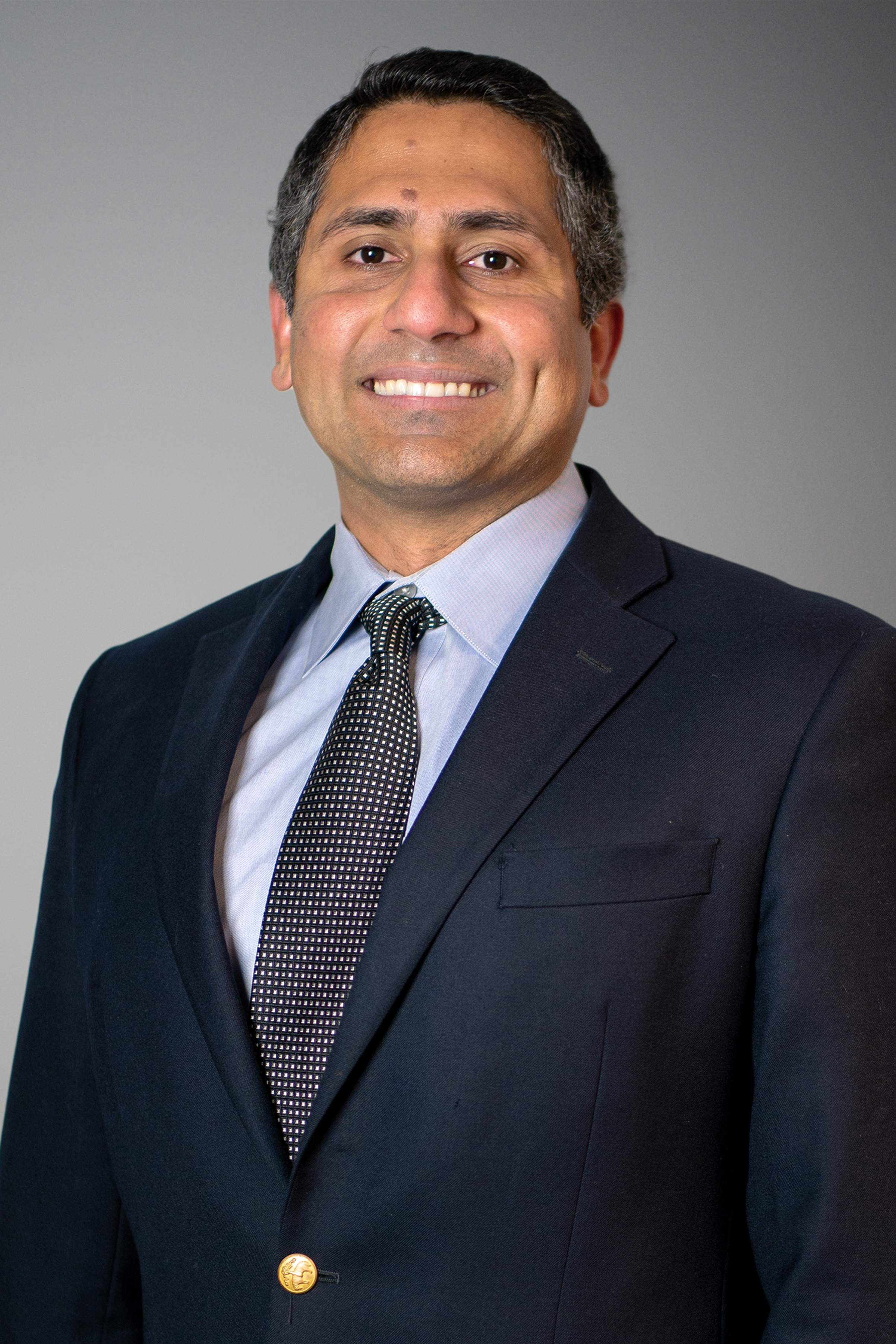

Abstract: As 6G standardization begins with the definition of ITU-R IMT 2030 requirements and 3GPP Release 21, we will explore the enabling technologies and architecture proposed for 6G. We will revisit 5G and the key technologies underpinning 5G from RAN, CORE and Cloud and discuss lessons learned including applications and utility of mobile communication networks. The talk will also explore adjacent developments in AI/ML , Cloud Computing and hardware improvements as we charter a path to 6G.
Bio: Abhimanyu Gosain is a Senior Director for Institute of Wireless Internet of Things at Northeastern University, co-Chair for the FCC 6G Technology Advisory Council, 3GPP standards delegate, and Senior Advisor for NTIA and DoD OUSD R&E. He serves as the Technical Program Director for National Science Foundation (NSF) PAWR, Colosseum and National Radio Dynamic Zone Engineering lead. He is Founding member for Magma Core Foundation, University representative for O-RAN Alliance and AI-RAN Alliance, Telecom Infra Project, NextG Alliance, advisory board member for XGMF Japan and co-chair on program committees for 6GSymposium, EuCNC, IEEE InfoCom, Globecom and ACM WinTech. His numerous professional publications and experience exemplify use-inspired basic research in the field of networking technologies, such as 5G, 6G, AI/ML, edge computing, and IoT.
Registration
The registration for the summer school can be done here. The deadline for registration is June 10 20 (FIRM).
Regular registration allows access to the full summer school, including social events.
Discount rate is aimed at students in order to encourage participation in the summer school. The discount registration also allows access to the full summer school, including social events.
Type of registration | Price (VAT inc.) |
|---|---|
Regular | 400 € |
Discount | 250 € |
All prices include VAT at 23%.
Travel and Accommodation
Porto is the second largest city in Portugal, located about 300 km north of Lisbon. Porto is located along the Douro river estuary and the Atlantic ocean, and is one of the oldest European centres. Porto historical core was proclaimed a World Heritage Site by UNESCO in 1996, and its urban area has a population exceeding 2 million. Porto has been elected multiple times as The Best European Destination by the Best European Destinations Agency. You are also encouraged to visit some other cities in the north of Portugal.
If you’re attending the SLICES-RI / CONVERGE Summer School, try to arrive in Porto at most on the June 23rd. This night is one of the city’s most vibrant and beloved celebrations: São João, anique blend of tradition, music, fireworks, and street parties. Locals and visitors alike take to the streets with plastic hammers, grilled sardines, and sky lanterns, creating an unforgettable atmosphere that stretches from downtown to the riverside. It’s the perfect opportunity to experience Porto’s festive spirit and connect with the local culture during your stay.
Porto is well served with by domestic, international and intercontinental flight connections to Porto Airport – OPO (Francisco Sá Carneiro), 15 km away from the city centre. For intercontinental flights, please also consider Lisbon Airport – LIS (Humberto Delgado). From Lisbon Airport – LIS (Humberto Delgado) to Porto Airport you can take one of the hourly plane connections from TAP, which should take about one hour. You can also take the train from Lisbon Oriente to Porto São Bento or Porto Campanhã. The trip should take around 3 hours.
Porto Metro system has a direct connection (purple line – E) between the Airport to the city centre (Trindade Metro Station) that runs every 20-30 minutes. Taxi, Uber and Bolt are also available and should cost you between 10 to 30€, depending on the distance.
INESC TEC is located at the Faculty of Engineering, University of Porto (FEUP) campus, on the northern edge of the city of Porto, near the Circunvalação ring road (EN12) and next to Hospital de São João.
Address: Rua Dr. Roberto Frias s/n, 4200-465, Porto, Portugal
Coordinates: 41.179508689603495, -8.59541368214172
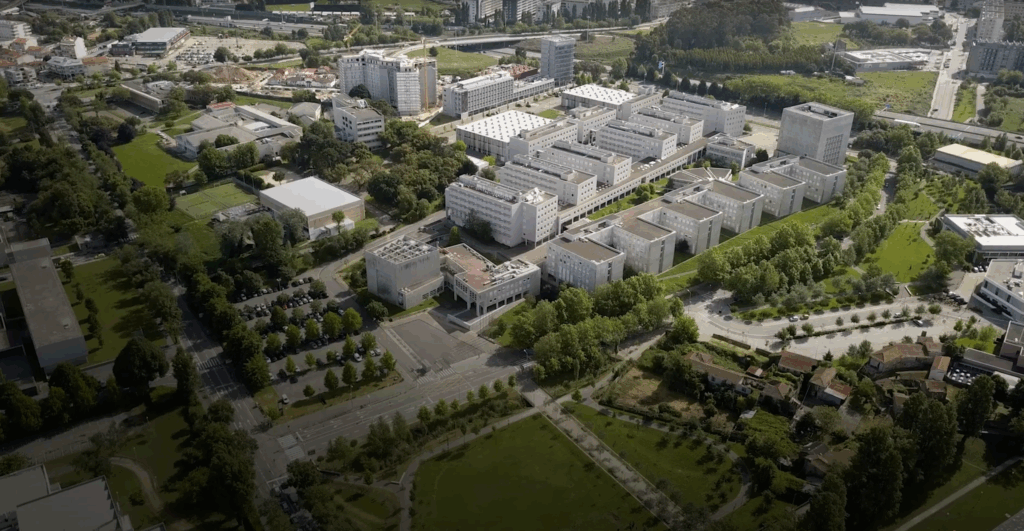
The easiest way to get to FEUP is by Metro (Yellow Line), which should take about 10-15 minutes from São Bento or Aliados station to IPO station. This line passes in Trindade station – the main station, where it makes the connection to all other lines, including the airport line. When you reach the IPO station, you will have a 10-minute walking time to INESC TEC.
FEUP is also easily accessible through Bus or by car. Please inform us if you are travelling by car, so that we can reserve you a parking slot.
Recommended Hotels in the City Centre
**** Axis Porto Club
**** Hotel Dom Henrique
*** Legendary Porto
*** Tryp Porto Centro
** Ibis Porto Centro
Recommended Hotels close to INESC TEC
**** Eurostars Oporto
**** Axis Porto Business & Spa
** Ibis São João
Organizing Committee
The SLICES-RI / CONVERGE Summer School 2025 organizing committee includes:
- Serge Fdida (Sorbonne Université, France)
- Filipe B. Teixeira (INESC TEC and FEUP, Portugal)
- Luís Pessoa (INESC TEC and FEUP, Portugal)
- Manuel Ricardo (INESC TEC and FEUP, Portugal)
- Ari Pouttu (University of OULU)
- Dirk Slock (EURECOM, France)
- Raymond Knopp (EURECOM, France)
- Raffaele Bruno (CNR, Italy)
